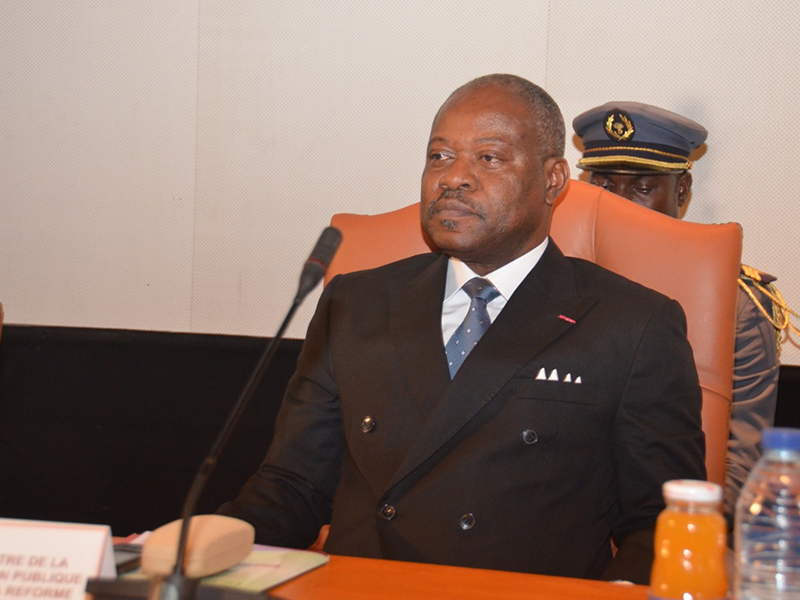
During the turbulent years known in Cameroon’s political history as “the years of embers” (1990–1992), the nation stood on the brink of collapse.
Two defining moments emerged from that volatile period: the advent of multiparty democracy and the birth of the Social Democratic Front (SDF) in Bamenda.
“In the face of crisis, we heard symbolic phrases from the President of the Republic in response to the growing unrest in the streets: ‘NO TO A SOVEREIGN NATIONAL CONFERENCE’, ‘HERE I AM IN DOUALA, HERE I AM THEN IN DOUALA’, ‘WHEN YAOUNDÉ BREATHES, CAMEROON LIVES’,” recalled Ange Michel Angouing.
“What courage! What mastery of political communication at a crucial moment in the nation’s life,” he added.
Angouing pointed to key state figures who stood firm behind the President: Laurent Esso, René Emmanuel Sadi, Pierre Moukoko Mbonjo, Jacques Fame Ndongo, and Jean Nkuete, among others.
These officials, he said, were “a true team with unwavering loyalty to the President of the Republic,” committed patriots trained in the “school of silence.”
Though time has passed, Angouing insists these memories remain indelible in the country’s political fabric and in President Biya’s long tenure.
He praised the President’s landmark decision at a party congress to embrace multiparty democracy: “The President declared that it was time to open the country to political competition and called on militants to prepare themselves.
The applause that followed showed just how well that courageous statement was received.”
Yet not all were in agreement. Emma Basile, the late, iconic mayor of Yaoundé, opposed the move, cautioning against a premature transition. Democracy’s birth under Biya, Angouing noted, was anything but smooth.
“Looking back after 35 years, given our undemocratic practices, one might wonder who was right: President Biya or Mayor Emma Basile?” he asked.
“Democratic culture remains weak among our institutions, political class, civil society, and even ordinary citizens.”
He posed a profound question: “Was President Biya the only one in 1990 who believed in democracy? Are we now destroying his legacy while he still lives?”
Angouing lamented the current state of political discourse—marked by clinging to privilege and power, shallow leadership, and tribal politics.
“That is why responsible youth believe we have failed and are calling for CHANGE,” he said.
He emphasized the critical role of the institutions President Biya established to manage elections. “They must do their duty—nothing more, nothing less—for the sake of national interest and electoral credibility.”
He concluded with a powerful reflection: “The President of the Republic, a beggar of peace, wishes to be remembered as the man who brought democracy and development to Cameroon.”
“The preservation of social cohesion and peace cannot go hand in hand with insults, threats, manipulation, or injustice,” Angouing warned. “Peace must be our common denominator.”
“As a magistrate by calling, I dream of a justice system fully empowered to serve as a societal regulator, for a Cameroon where it is good to live,” he said, closing with a heartfelt call: “Let us unite in prayer for health and peace.



